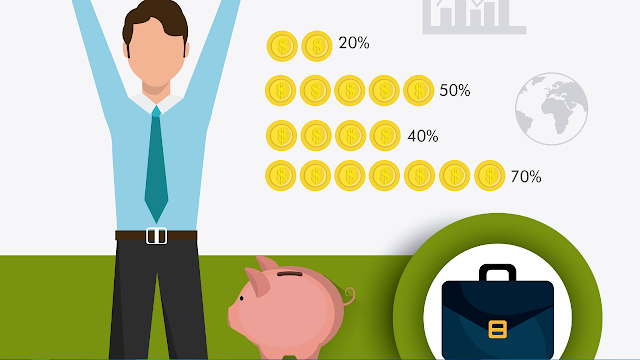Harvesting of Domestic Waste Material Forming Compost
Composting is best suited to people with a bit more space in their yard, Composting is the one system that you can place small amounts of soil into. It is a hot form of processing organic matter, that an effective compost system. The larger the compost heap, the better chance of it reaching the optimal heat. The heat is actually caused by two things: the breaking down of organic matter, and the millions of microorganisms and bacteria processing the organic matter.
If there are sufficient microorganisms, then there is no need to add worms to your compost. A compost heap has been used either just heaped in the garden, or with a wall or barrier around it made from recycled materials such as brick, timber. These days, with space more limited, compost bins offer a convenient solution. Composting is an easy way to recycle Domestic Waste that involves decomposing everyday kitchen waste into a rich soil known as compost (black gold). Brown materials supply carbon, while green materials supply nitrogen. Best ratio is one part green to one part brown material for Composting Many advocate that compost can be made in 2 to 3 weeks.
Organic solid waste (green waste)
Nursery for starting seeds or growing young plants. Fungi or pathogens allows decomposition process and eliminating phytotoxic substances into continue time. An alternative approach is anaerobic fermentation, known as bookish. It retains carbon bonds, is faster than decomposition, and for application to soil requires only rapid but thorough aeration rather than curing.
Vermicomposting
Vermicompost is the product ( black gold) or process of organic material degradation or back down using various species of pathogens as worms, usually red wigglers, white worms, and earthworms.it is to create a heterogeneous mixture of decomposing vegetable or food waste with excluding nitrogen-rich meat or dairy and fats or oils, bedding materials, and vermicast. It is also known as worm castings, worm humus or worm manure.it is the end-product of the organic matter breakdown via species of earthworm.
Composting Toilets
A composting toilet collects human excreta. These are added to a compost heap that can be located in a chamber below the toilet seat. Some composting toilets do not require water or electricity; others may. If they do not use water for flushing they fall into the category of dry toilets. Some composting toilets are designs to use urine diversion with properly managed,
Worm Hotels
One of the facts that Organic ingredients intended for composting can also be used to generate biogas is anaerobic digestion. This process alleviates organic material. The residual material, sometimes in combination with other sewage sludge can be cured by a composting process before selling or giving away the compost. For example •In 2006, Qatar awarded Keppel Seghers Singapore, a subsidiary of Keppel Corporation, a contract to begin construction on a 275,000 tonne/year anaerobic digestion and composting plant licensed by Kompogas Switzerland. This plant, has15 autonomous anaerobic digesters, it will be the world’s largest composting facility once fully operational in early 2011. It forms part of Qatar’s Domestic Solid Waste Management Centre, the largest integrated waste management complex in the Middle East.
Commercial
Compost term can refer to potting mixes which are bagged up and sold commercially in garden centers and other outlets including composted materials e.g. manure and peat. But it is also likely to contain loam, fertilizers, sand, and grit, etc. some are also asa range of specialist composts available, e.g. for vegetables, orchids, houseplants, hanging baskets, roses, ericaceous plants, seedlings, etc potting etc.
Advantages
Compost is Using as mulch in the soil or as potting media.it is beneficial in many ways. Compost contains an essential plant nutrient in full spectrum of. We can test the nutrient levels in our compost and soil. Some time to find out what other supplements we needed but it may need for specific plants.
- Compost releases nutrients slowly—over months or years, unlike synthetic fertilizers
- Compost enriched soil retains fertilizers better. If Less fertilizer scores off to pollute waterways.
- Only a 5% growth in organic material multiplies soil water holding capacity.
Disadvantages
If the first batch of done compost is ready to spread, congratulate yourself for your efforts because are ecological minded, and know that organic materials should be cast-off into the soil instead of being put in a garbage can. Composting is commonly observed as one of the best systems of preserving and enhancing the fertility of garden soil. There is definitely great value in converting organic waste products into a humus-rich soil modification teeming with useful microorganisms.
Summary
According to, Waste 21 organic native waste establishes a supply that is not satisfactorily utilized today for composting as well as biogas treatment. The short-term target (year 2004) is recycling of organic waste corresponding to 7% of the total quantity of domestic waste, or corresponding to 150,000 tons/year. Of this quantity, approx. 100,000 tons/year should be recycled by biogas treatment. The long-term target is recycling of organic domestic waste corresponding to 20-25% of the total quantity of domestic waste. Waste 21 allusions as one of the main barriers to attaining the targets mentioned above. The lack of introduction for organizational and technological reasons.it is compulsory separated collection of organic domestic waste and residual waste for composting and biogas treatment. A number of models concerning organization of source separation, collection and pre-treatment of the organic part of the domestic waste have been made and calculated. So that subsequent treatment and distribution of the organic material (organic manure and compost) on agronomic land can take place.




Comments
Post a Comment